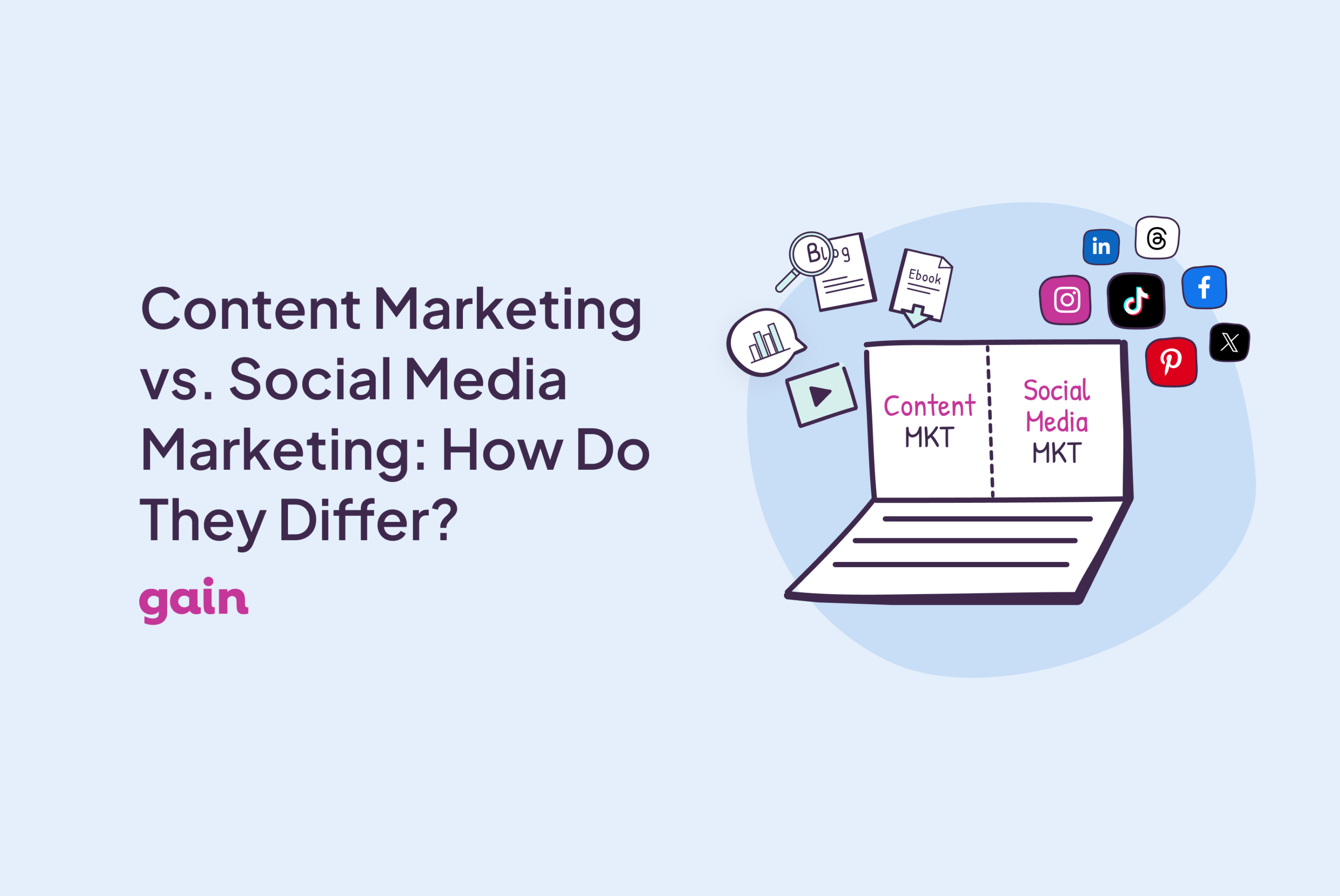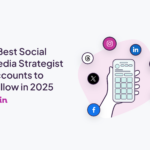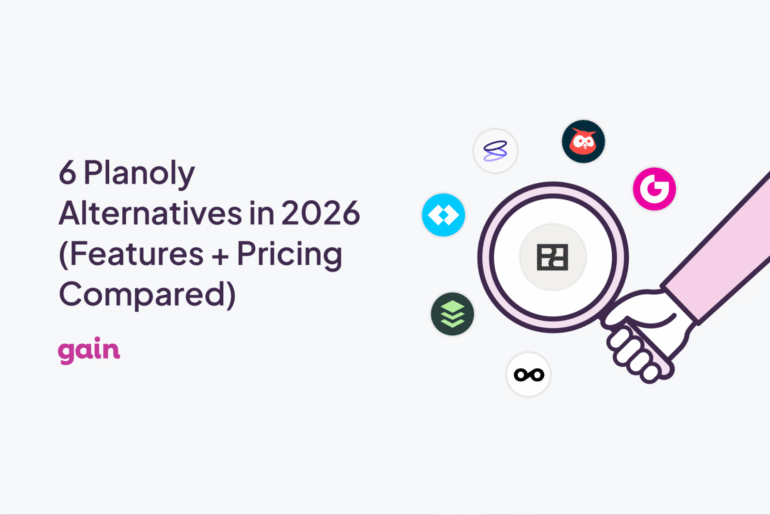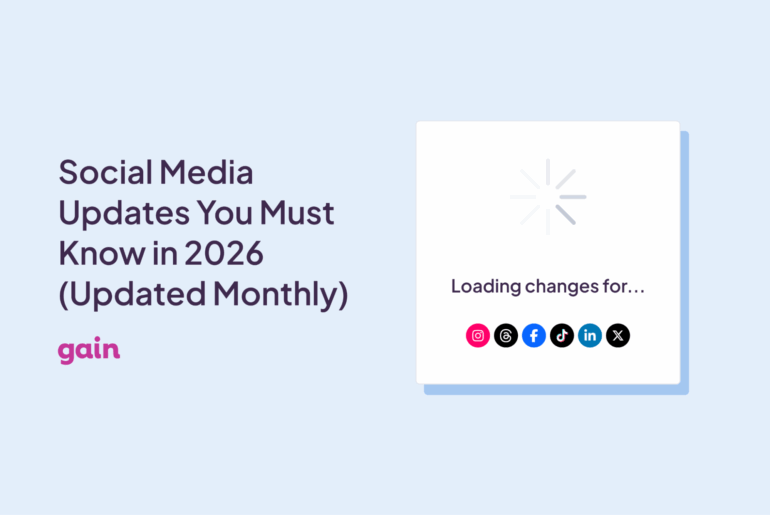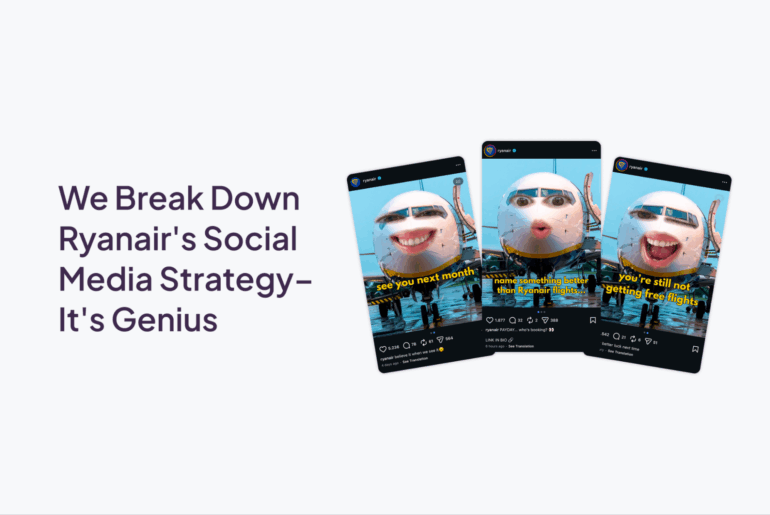Are you unsure of the difference between content marketing and social media marketing? This article clarifies the main differences once and for all.
If you’ve ever been confused by the terms “content marketing” and “social media marketing” you’re not alone. People often throw them around as if they are the same thing but there are actually some key differences.
In this article, we aim to clearly define these terms so you can use them with ease.
Understanding the Basics of Content Marketing and Social Media Marketing
What is Content Marketing?
Content marketing is designed to help you establish yourself as a brand leader with a breadth of online material. The idea is to create high-performing content to raise awareness of a product and encourage customers to engage with the content. Good content marketing attracts an audience and holds their attention.
Content marketing includes creating online assets like videos, blog posts, e-books, and infographics. It can be something as simple as a ‘how to’ guide that makes your product more accessible. The goal is not always to market the brand but sometimes to increase the adoption of the product among existing customers.
A good example of this is the e-book we created to help with onboarding new clients.
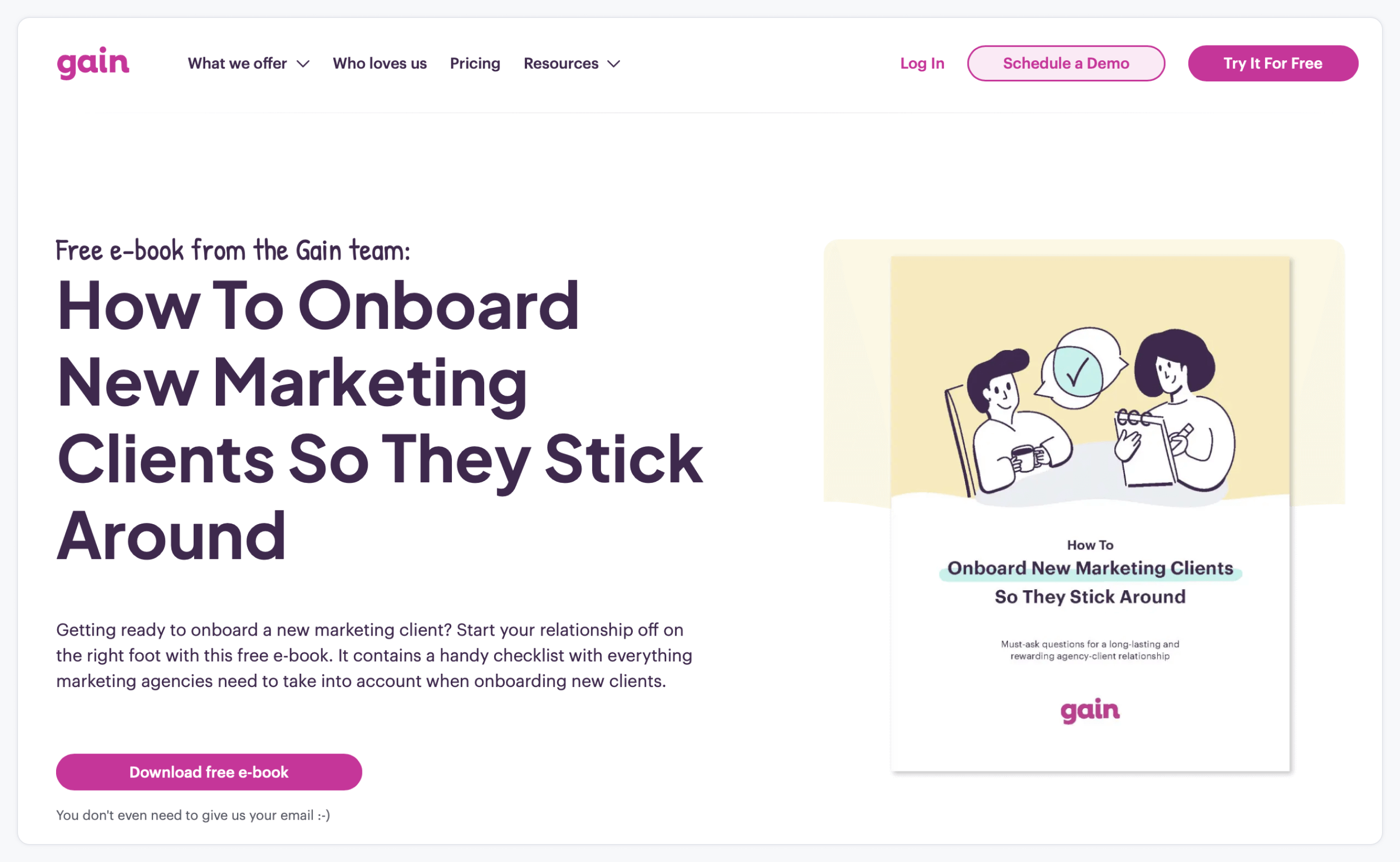
What is Social Media Marketing?
Social media marketing is somewhat more specific. The primary goal is increasing brand awareness and customer trust. This is achieved through establishing a steady presence of well-curated content in the social media sphere of customers and potential customers.
The idea is to engage audiences directly through social media platforms such as Instagram, LinkedIn, and X (Twitter). These channels are perfect for farming immediate engagement, brand interaction, and community building.
You can get creative with social media marketing by incorporating emojis and memes into your feed to make the brand feel relatable.
The example here on our Instagram shows how we seek to engage customers by appealing to a potential pain point and then directing traffic to our content marketing assets.

Comparison of Content Marketing vs. Social Media Marketing
Strategy
One of the key differences between content marketing and social media marketing is the strategy you require.
With social media marketing, you need to establish a presence where customers can find you in online spheres they already spend time in.
To successfully use social media marketing you need to:
- Understand the dynamics of various social media platforms.
- Track what type of content works best in each format.
- Engage with customers directly by responding to messages and comments.
When designing your content marketing strategy, you should seek to identify pain points and preempt issues in the customer journey. If you do this correctly, it means when customers come to you looking for help or advice, a resource already exists.
For your content marketing strategy, you should:
- Research and establish a target audience.
- Utilize SEO to drive leads to your content.
- Choose distribution channels that align with your business.
Distribution
Content marketing is often something that existing customers come looking for. You need to have your asset library stocked. You can, however, invest in some less passive distribution channels and utilize mailing lists and paid advertising to drive engagement to your assets.
Social media marketing requires you to decide which platforms you think are most effective for reaching your target audience. You need to become an expert on your chosen channels so you know how and when to post to make the biggest splash.
Content Assets
In terms of content assets, content marketing is more diverse. You can build yourself a comprehensive library of assets that are accessible when necessary. You can create short-form or long-form content like e-books, video guides, blog posts, and FAQ pages.
For instance, Google Workspace has a whole host of ‘How to’ guides to help users get the most out of their products which helps customers feel supported by the brand.

Social media marketing varies from channel to channel, but generally, your assets need to be short, snappy, and eye-catching. You want to encourage customers to engage with your social media content so they feel familiar with your brand. Assets should work cohesively to establish a brand image. Social media marketing can also drive traffic to your meatier content marketing.
Here’s a side-by-side comparison of the core differences between the content types:
| Aspect | Content Marketing | Social Media Marketing |
| Focus | Long-term value creation and brand authority | Immediate engagement and community building |
| Content Type | Blog posts, white papers, case studies, videos | Short-form videos, stories, social media posts |
| Distribution Channel | Owned platforms (website, blog, email) | Third-party platforms (Facebook, Instagram, Twitter) |
| Goal | SEO, brand awareness, lead generation | Real-time interaction, follower growth, engagement |
| Lifespan of Content | Evergreen; can drive value for months or years | Short-lived; immediate but temporary visibility |
Goals
Social media marketing is a two-way street that aims to start a conversation with customers. When you post on social media channels, you open yourself up to questions, opinions, and critiques.
The wider goals include:
- Humanizing your brand.
- Enhancing public relations and customer service.
- Providing insights and analytics about customer engagement.
Content marketing provides customers with more in-depth answers about your brand, particularly for pre-existing customers. It focuses on moving them through the marketing funnel toward loyalty.
The aim is to:
- Attract and engage.
- Build brand trust and long-term awareness.
- Boost SEO.
- Build authority.
Tools Used
For content marketing, the assets you create will be highly personalized to your brand. The level of quality you produce will depend on how well you understand your audience and your mission.
One tool that will help you, however, is an SEO optimization tool like Semrush. Semrush and their Keyword Magic tool can help you embed important keywords in your assets. It provides you with data on the search volume and keyword difficulty of your key phrases.
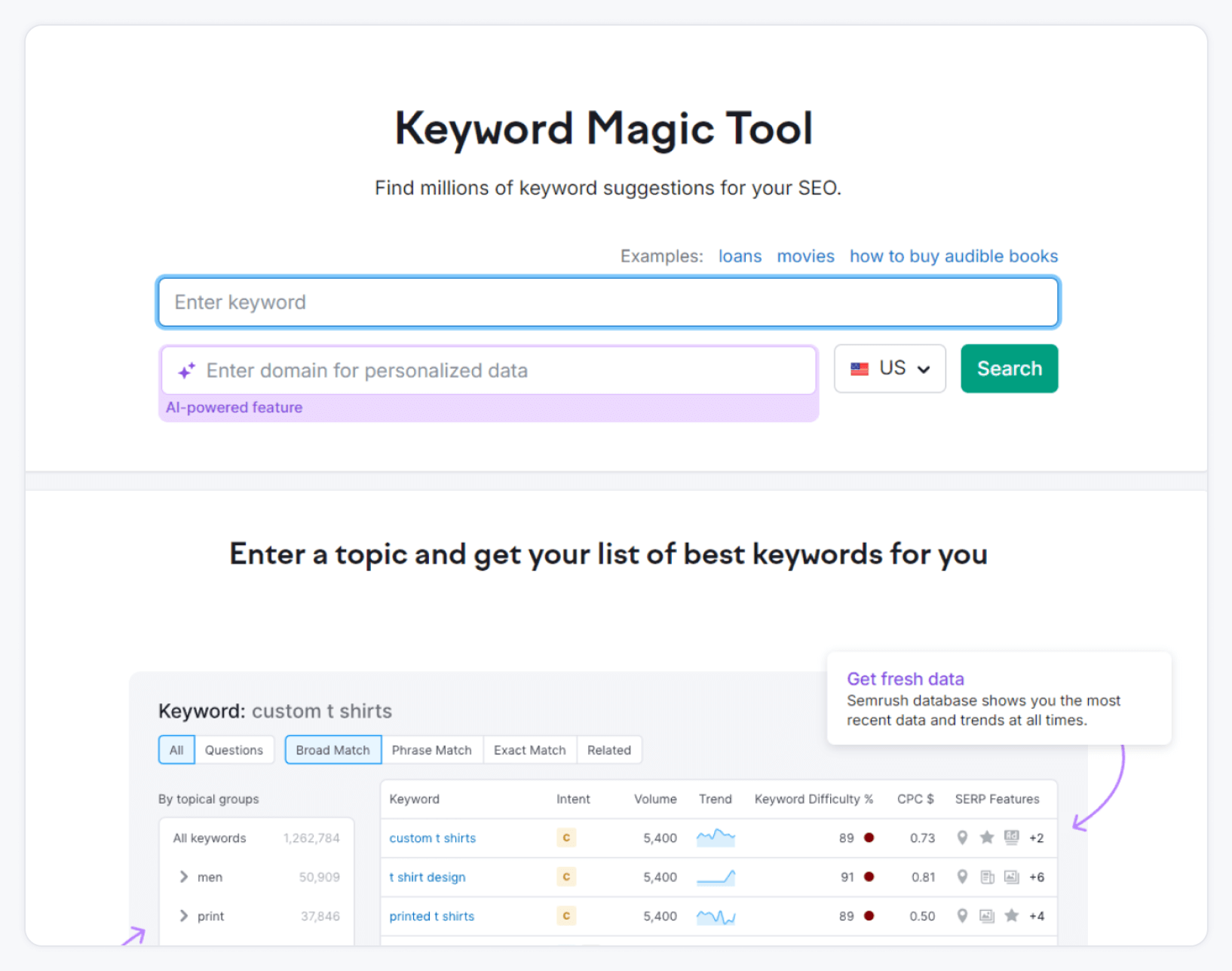
Social media marketing can be enhanced using a wide variety of available tools. For organization, we recommend using a visual content calendar. This allows you to cast your eye over your upcoming content and see what’s up next in seconds.

We also recommend using a content approval tool like Gain. Our platform allows you to store your content assets and build a custom approval workflow that automatically moves the assets along as each stakeholder signs off. This can save you valuable time that gets wasted chasing approvals in email chains.
Which One Should You Focus On?
For a successful marketing strategy, a two-pronged attack is best. Both content marketing and social media marketing are powerful tools you need to grow your business. They go hand-in-hand.
Content marketing allows you to show customers what your product or service can really do, while social media marketing enables you to connect with your customer base on a more personal level.
Content marketing gives your existing customers access to valuable insights about your products. Social media content has the added bonus of being shareable to new leads. When done well, your content will spread through online word-of-mouth. Neither approach should be overlooked.
Final Thoughts
Now you understand a little bit more about content and social media marketing, it’s time to put them into practice. They have distinct advantages and differences, and knowing which to use and when can really boost your business.
Social media management tools like ours can help you hone your marketing strategy. Gain takes the headache out of managing and approving social media content so you can save time and spend it elsewhere. Using tools as part of your approach helps to streamline your process so you can focus on your content marketing and social media marketing strategies.
Sign up free today to see how our tool can help you take your social media marketing to the next level.

